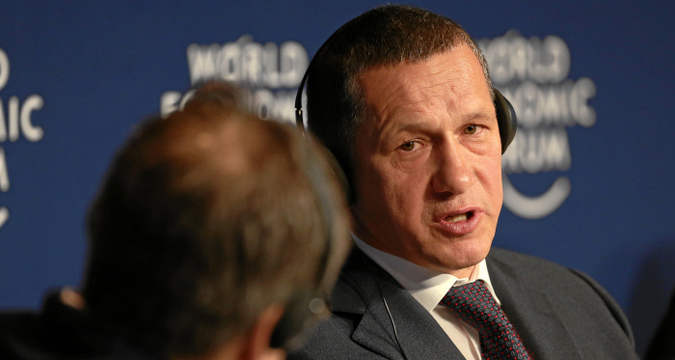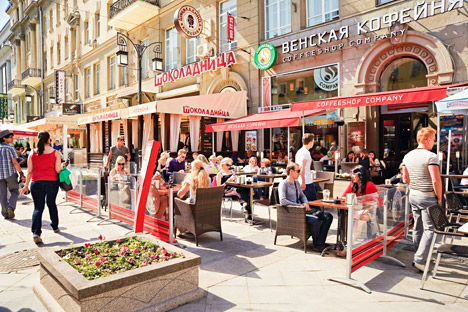At Davos forum Russia promises to eliminate its dependence on oil

Russian Deputy Prime Minister Yuri Trutnev.
swiss-image.ch/WORLD ECONOMIC FORUMLow oil prices are helping the Russian government carry out large-scale reforms despite the drastic reduction of foreign investment, said Russian Deputy Prime Minister Yuri Trutnev, the head of the Russian delegation at the World Economic Forum in Davos, Switzerland.
“One of the consequences of the crisis in Russia is the devaluation of the national currency, which is not good for the citizens, but is positive for investors,” said Trutnev.
According to the deputy prime minister, Russia currently has the right conditions for attracting investment, it has significantly improved its positions in the World Bank's “Doing Business” ranking and the cost of production in the country is at record lows.
What's attractive about Russia
Trutnev believes that one of the ways Russia will attract investors after implementing reforms is through the Territories of Priority Development (TPD) in the Far East. These are zones that offer a special customs and tax benefits.
“We haven't come up with anything new,” Trutnev said. “We just studied the way Singapore, Malaysia and other Southeast Asian countries developed and as a result drafted a law based on the best practices.”
He says that 80 residents from these special zones are already working on projects with a total investment volume of 300 billion rubles ($3.76 billion). Among the most active investors are companies from South Korea, Japan and China. At the forum Trutnev announced that Russia is also holding talks with Indian investors.
Yelizaveta Osetinskaya, the editor-in-chief of the RBK media holding, which specializes in business information, tried to interpret the mood. In her words, Russia's latest economic crisis is one of many to occur in the last several years. “Everyone is used to us living in a rather nervous situation, but both large and medium businesses expect a lot from 2016,” she said.
Osetinskaya thinks that two factors would help the Russian economy: the cancellation of reciprocal sanctions with western countries and the large-scale privatization of government assets, similar to what happened after the collapse of the Soviet Union in the early 1990s.
A difficult road ahead
“If we look at the economic results, this year holds nothing good in store for the country's economy,” says Vladimir Dmitriev, head of Vnesheconombank, the largest economic development institute in the country. In his words, Russia's economy is contracting in many aspects. In particular, by the end of 2015 the flow of foreign investment in Russia had decreased by 92 percent.
Meanwhile, according to former Russian Finance Minister Alexei Kudrin, the dependence on oil prices led to the fall of the country's GDP. However, this decrease could help Russia's economy reduce its dependence on the production of hydrocarbons.
Kudrin also noted that the devaluation of the ruble made it difficult for Russian enterprises to buy necessary technology and the high interest rates prevent the increase of production. The cancellation of western sanctions would obviously help Russia and the former minister believes that reciprocal sanctions could be cancelled by the end of 2016.
In particular, participants of the Davos forum remarked that the fact that Russian Prime Minister Dmitri Medvedev will head the Russian delegation at the upcoming Munich Security Conference on February 12-14 implies that relations between Russia and the West could soon normalize. Earlier, it was assumed that the Russian delegation would be headed by one of the country's deputy prime ministers; Medvedev's participation was announced only on January 21.
Rare deals
During the Davos forum the state-owned Russian Direct Investment Fund made a deal with one of the world's leading port operators, DP World, from the United Arab Emirates. According to the agreements, the company will invest up to $2 billion in Russian ports.
Additionally, the Russian Direct Investment Fund and the Saudi Public Investment Fund said that they would soon announce new joint projects in the retail, logistics and real estate sectors. The joint projects could be worth as much as $10 billion, but the details have not yet been released.
Kudrin: Sanctions against Russia could start to ease late 2016-early 2017>>>
All rights reserved by Rossiyskaya Gazeta.
Subscribe
to our newsletter!
Get the week's best stories straight to your inbox


